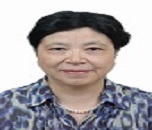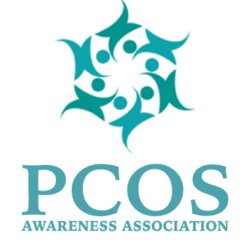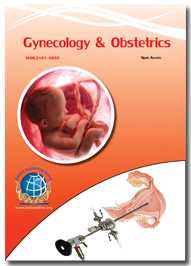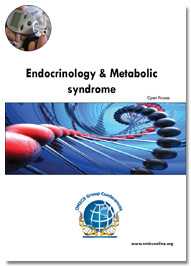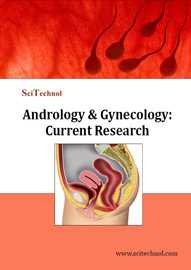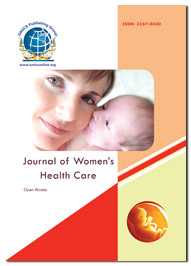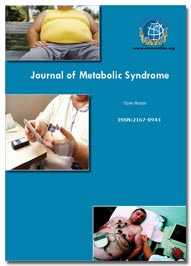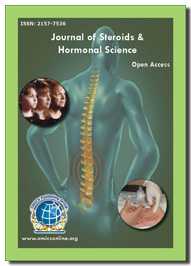Theme: Recent Advancements in Polycystic Ovarian Syndrome Diagnosis and Therapy
PCOS 2015
OMICS International Conferences invites all the participants from all over the world to attend 'Polycystic Ovarian Syndrome Conference’ during November 16-18, 2015 in Seattle, USA which includes prompt keynote presentations, Oral talks, Poster presentations and Exhibitions.
PCOS 2015 is a global platform to discuss and learn about PCOS and its Associated Diseases Polycystic Ovarian Syndrome, Effects of PCOS on Womens Health, Endometriosis,Ovarian Cyst,PCOS- Medications and Treatment,Alternative PCOS Treatment,PCOS and Pregnancy,PCOS in Teens and Adolescents: Early Diagnosis and Intervention,Medical Diagnosis of PCOS,Prevention and Management of PCOS,Advanced Management of PCOS,Recent Research and Current Advancements in PCOS Treatment,Advanced Polycystic Ovarian Diseases Treatment
Track 1: Polycystic Ovarian Syndrome
Insulin is the hormone produced in the pancreas that allows cells to use sugar. Excess insulin might also affect the ovaries by increasing androgen production, which may interfere with the ovaries' ability to ovulate.
Body's white blood cells produce substances to fight infection in a response called inflammation. Research has shown that women with PCOS have low-grade inflammation and that this type of low-grade inflammation stimulates polycystic ovaries to produce androgens.
Hormones are the chemical messengers in the body that travel the bloodstream to the organs and tissues. They work slowly via feedback mechanisms with other glands and organs, affecting many of the body's processes over time. Endocrine glands, which are special groups of cells, make hormones. The infertility rates with polycystic ovaries is very high. Women usually will have difficulty getting pregnant - and usually require treatment to improve chances for pregnancy. Diabetes mellitus, commonly referred to as diabetes, is a group of metabolic diseases in which there are high blood sugar levels over a prolonged period. For more details on OMICS group conferenceseries.
Related Conferences: 2nd International Conference on Gynecology & Obstetrics November 16-18, 2015, USA ; 3rd International Conference on Endocrinology November 02-04, 2015, USA ;International Conference on Metabolic Syndromes October 20-22, 2016 UAE; International Conference on Targeting Diabetes and Novel Therapeutics September 14-16, 2015, USA;22nd World Congress on Controversies in Obstetrics, Gynecology & Infertility 2015 (COGI 2015) September 17-20, 2015, Hungary
Track 2: Effects of PCOS on Women's Health
Endometrial cancer is a cancer that arises from the endometrium. It is the result of the abnormal growth of cells that have the ability to invade or spread to other parts of the body. The first sign is most often vaginal bleeding not associated with a menstrual period. Other symptoms include pain with urination or sexual intercourse, or pelvic pain. Endometrial cancer occurs most commonly after menopause.
Hyperandrogenism is one of the primary symptoms of polycystic ovary syndrome (PCOS). In such cases, it presents with symptoms such as acne and seborrhea, is frequent in adolescent girls and is often associated with irregular menstrual cycles.
Dyslipidaemia, diabetes, and obesity are all potent cardiovascular risk factors that tend to cluster in women with PCOS. However, it is not known whether the increased cardiovascular risk seen in PCOS is mediated through obesity is independent of body mass index (BMI) and the result of other metabolic factors.
Related Conferences: 7th Health Care and Fitness Summit September 26-28, 2016, UK ; 6th Global Healthcare & Fitness Summit August 22-24, 2016, USA ; Pregnancy Summit & Child Health August 29-31, 2016, Brazil; International Conference on Reproductive Health August 29-31, 2016 USA; 4th International Conference on Nursing & Healthcare October 05-07, 2015, USA; 18th Annual NPWH Premier Women's Healthcare Conference October 14 - 17, 2015;
Track 3: Endometriosis
Endometriosis is a disease in which tissue that normally grows inside the uterus grows outside the uterus. Its main symptoms are pelvic pain and infertility. Nearly half have chronic pelvic pain, while in 70% pain occurs during menstruation. Pain with sex is also common. Infertility occurs in up to half of people. Less common symptoms include urinary or bowel symptoms. About 25% of women have no symptoms. Endometriosis can have both social and psychological effects.
Hormonal contraceptives Birth control pills, patches and vaginal rings help control the hormones responsible for the buildup of endometrial tissue each month .
Gonadotropin-releasing hormone (Gn-RH) agonists and antagonists These drugs block the production of ovarian-stimulating hormones, lowering estrogen levels and preventing menstruation.
Medroxyprogesterone (Depo-Provera) This injectable drug is effective in halting menstruation and the growth of endometrial implants, thereby relieving the signs and symptoms of endometriosis.
Related Conferences: Polycystic Ovarian Syndrome Conference November 16-18, 2015, USA; International Conference on Reproductive Health August 29-31, 2016 USA, 5th Asian Conference on Endometriosis 22 - 24 September 2016,Japan, 4th Asian Conference on Endometriosis November 19-21,Jordan
Track 4: Ovarian Cyst
An ovarian cyst is any collection of fluid, surrounded by a very thin wall, within an ovary. Any ovarian follicle that is larger than about two centimeters is termed an ovarian cyst. Such cysts range in size from as small as a pea to larger than an orange. Ovarian cysts occur in women of all ages including neonatal period and infancy. They are most prevalent during infancy, adolescence and during the childbearing years. With ultrasonography ovarian cysts can be demonstrated in nearly all premenopausal and approximately 18% postmenopausal women
Polycystic ovarian cancer is a heterogeneous disorder of uncertain Cause. There is strong evidence that it is a genetic disease. Such evidence includes the familial clustering of cases, greater concordance in monozygotic compared with dizygotic twins and heritability of endocrine and metabolic features of PCOS.
Ovarian cancer warning signs include ongoing pain or cramps in the belly or back, abnormal vaginal bleeding, nausea, and bloating. Depending on the cancer stage, ovarian cancer treatment includes surgery and chemotherapy
There are two types of Ovarian Cyst Surgery
Laparoscopy
Most cysts can be removed using laparoscopy. This is a type of keyhole surgery where small cuts are made in your tummy and gas is blown into the pelvis to allow the surgeon to access your ovaries.
Laparotomy
During a laparotomy, a single, larger cut is made in your tummy to give the surgeon better access to the cyst.
The whole cyst and ovary may be removed and sent to a laboratory to check whether it's cancerous. Stitches or staples will be used to close the incision.
Related Conferences: Polycystic Ovarian Syndrome Conference November 16-18, 2015, USA;
Track 5: PCOS- Medications and Treatment
Clomiphene therapy is typically used for 5 consecutive days early in the menstrual cycle, for 3 to 6 monthly cycles. It may take several cycles to find the right dose to stimulate ovulation. After that dose is determined, a woman will take the drug for at least 3 more cycles.
Drugs used in the treatment of polycystic ovarian syndrome (PCOS) include metformin (off-label use), spironolactone, eflornithine, and oral contraceptives. Oral contraceptives containing a combination of estrogen and progestin increase sex hormone–binding globulin (SHBG) levels and thereby reduce the free testosterone level. Luteinizing hormone (LH) and follicle-stimulating hormone (FSH) levels are also suppressed. This restores cyclic exposure of the endometrium to estrogen-progestin, with the resumption of menstrual periods and decreased hirsutism. However, the use of oral contraceptives may be associated with an increased risk of thrombosis and metabolic abnormalities.
Related Conferences: International Conference on Targeting Diabetes and Novel Therapeutics September 14-16, 2015, USA; 4th International Conference on Epidemiology and Public Health, October 03-05, 2016 United Kingdom; 12th Diabetes Meeting and Therapeutics Expo September 29-October 1, 2016 Toronto, Canada;
Track 6: Alternative PCOS Treatment
Polycystic ovarian disease (PCOD) is a common hormonal disorder among women of reproductive age. It is a condition where hormonal imbalance affects the follicular growth during the ovarian cycle, causing the affected follicles to remain in the ovary.
Ayurveda classifies PCOD as a kapha disorder. Kapha having first affected the digestive fire – jatharaagni starts to affect the metabolic aspect of the seven tissues called dhatu agni. Each dhatu agni is responsible for the nourishment and formation of that particular tissue that it resides in.
Ayurvedic for Polycystic ovarian syndrome diets focus on developing healthy Aartava (Female reproductive tissue-one of the dhatu). A diet for patients with PCOS include fresh food and Vegetable. Also recommend fresh fruits such as peaches, pears, plums as well as dried fruits such as dates, figs and raisins
Poly cystic ovarian syndrome can result in infertility issues. It can also be treated naturally through diet and herbal remedies.
Related Conference: 4th International Conference on Translational Medicine October 26-28, 2015, USA
Track 7: PCOS and Pregnancy
“Infertility" is a term used to describe the inability of a woman or man to conceive a child or the inability of a woman to carry a pregnancy to term.
Ovulation is the result of a maturation process that occurs in the hypothalamic-pituitary-ovarian (HPO) axis and is orchestrated by a neuroendocrine cascade terminating in the ovaries. Any alteration results in a failure to release a mature ovum, leading to anovulatory cycles. Anovulation may manifest in a variety of clinical presentations, from luteal insufficiency to oligomenorrhea.
Anovulation is a not a disease but a sign, in much the same way that polycystic ovaries are the manifestation of a much larger disease process.
Preeclampsia is a pregnancy complication characterized by high blood pressure and signs of damage to another organ system, often the kidneys. Preeclampsia usually begins after 20 weeks of pregnancy in a woman whose blood pressure had been normal. Even a slight rise in blood pressure may be a sign of preeclampsia.
Related Conference: Pregnancy Summit & Child Health August 29-31, 2016, Brazil
Track 8: PCOS in Teens and Adolescents: Early Diagnosis and Intervention
Diagnosing PCOS in adolescents requires a unique set of criteria for which no single marker currently exists. Adolescents at high risk for developing the syndrome are congenital virilization, low birth weight, premature pubarche, central precocious puberty, large for gestational age girls born to overweight mothers, obesity syndromes, insulin-resistant features, and girls born to parents with PCOS, central obesity, or diabetes in whom PCOS ought to be suspected when associated with irregular menses.
Neurologic and psychiatric disorders occur commonly in adolescents. Conditions such as epilepsy, migraines, and bipolar disorder are typically disorders that require chronic medication to treat symptoms and prevent recurrence of episodes.
Related Conferences: 4th International Conference and Exhibition on Obesity and Weight Management December 07-09, 2015, USA; 4th International Conference on Weight Loss and Fitness Expo November 21-23, 2016 UAE; 11th Asia Pacific Diabetes Conference and Expo July 11-13, 2016 Brisbane, Australia; 8th Euro Global Diabetes Summit and Medicare Expo November 03-05, 2015 Valencia, Spain
Track 9: Medical Diagnosis of PCOS
Pelvic laparoscopy is called a minimally invasive procedure because only small incisions are made. Smaller incisions often allow patients to experience a shorter recovery period, less blood loss, and lower levels of post-surgical pain than in open surgery.
Ultrasound tests use high-frequency sound waves to allow doctors to see your internal organs. The sound waves bounce off your organs, creating images of their structures. A transvaginal ultrasound is a kind of pelvic ultrasound that is used to see reproductive organs like the uterus, ovaries, cervix, and vagina.
The endometrial biopsy is a medical procedure that involves taking a tissue sample of the lining of the uterus. The tissue subsequently undergoes a histologic evaluation which aids the physician in forming a diagnosis.
Track 10: Prevention and Management of PCOS
Polycystic ovary syndrome cannot be prevented. But early diagnosis and treatment helps prevent long-term complications, such as infertility, metabolic syndrome, obesity, diabetes, and heart disease. Polycystic ovarian syndrome is the most common manifestation of hormonal dysfunction in reproductive-age women today. PCOS is a heterogeneous condition, both clinically and biochemically. The prevalence of PCOS is reported to be anywhere from 4% to 12%, with mild racial variations.
The menstrual irregularity of PCOS typically manifests in the peripubertal period, although some women may apparently have regular cycles at first and subsequently develop menstrual irregularity in association with weight gain. Menstrual irregularities include mild or severe oligomenorrhea or amenorrhea. Anovulation is very common in the presence of mild oligomenorrhea, but also when normal cycles are present.
Track 11: Advanced Management of PCOS
Weight loss, in the context of medicine, health, or physical fitness, refers to a reduction of the total body mass, due to a mean loss of fluid, body fat or adipose tissue and/or lean mass, namely bone mineral deposits, muscle, tendon, and other connective tissue. Weight loss can either occur unintentionally due to malnourishment or an underlying disease or arise from a conscious effort to improve an actual or perceived overweight or obese state.
Polycystic Ovarian Syndrome, often shortened to PCOS is a condition that affects between 10-15% of women of reproductive age. PCOS affects the ovaries, the organ in a woman’s body which produces eggs, and typically means that there are a number of minute cysts around the edge of the ovaries, hence the term polycystic. It is also characterised by excess production of androgens (male-type hormones such as testosterone).
Track 12: Recent Research and Current Advancements in PCOS Treatment
Potential areas of further research activity include the analysis of predisposing conditions that increase the risk of PCOS, particularly genetic background and environmental factors, such as endocrine disruptors and lifestyle. The concept that androgen excess may contribute to insulin resistance needs to be re-examined from a developmental perspective, since animal studies have supported the hypothesis that early exposure to modest androgen excess is associated with insulin resistance.
Defining alterations of steroidogenesis in PCOS should quantify ovarian, adrenal and extraglandular contribution, as well as clearly define blood reference levels by some universal standard. Intraovarian regulation of follicle development and mechanisms of follicle arrest should be further elucidated.
Related Conferences: 2nd Global Summit on Hormones and Steroids June 23-25, 2016, USA; 7th Indo Global Diabetes Summit and Medicare Expo November 23-25, 2015 Bangalore, India;
Track 13: Advanced Polycystic Ovarian Diseases treatment
The PCOS diagnosis is generally made through clinical signs and symptoms. The doctor will want to exclude other illnesses that have similar features, such as low thyroid hormone blood levels or elevated levels of a milk-producing hormone .Also, tumors of the ovary or adrenal glands can produce elevated male hormone blood levels that cause acne or excess hair growth, mimicking symptoms of PCOS.
The cysts (fluid filled sacs) in the ovaries can be identified with imaging technology. Ultrasound imaging employs no injected dyes or radiation and is safe for all patients including pregnant women. It can also detect cysts in the kidneys of a fetus.
Related Conferences: International Conference on Thyroid Disorders and Treatment February 29-March 02, 2016 ,USA; 2nd Global Summit on Hormones and Steroids June 23-25, 2016, USA; 9th Global Diabetologists Annual Meeting and Medicare Expo June 06-08, 2016, USA; Pregnancy Summit & Child Health August 29-31, 2016, Brazil;11th Asia Pacific Diabetes Conference and Expo July 11-13, 2016 Brisbane, Australia;
OMICS Group officially welcomes you to attend the “2nd World Congress on Polycystic Ovarian Syndrome” during October 06-08, 2016 at Miami, USA which includes prompt keynote presentations, Oral talks, Poster presentations and Exhibitions. Special interest and theme of this conference is to “Leading health concern of new age woman: Treatment and care”
Co-hosting this conference is one of the fastest growing Polycystic ovarian syndrome associations nonprofit organizations, PCOS Awareness Association. The conference aims to provide an opportunity to share knowledge, expertise along with unparalleled networking opportunities between a large number of eminent medical and industrial professionals in this sphere. OMICS International PCOS 2016 gathers renowned scientists, physicians, surgeons, young researchers, delegates and talented student communities in the field of PCOS medicine under one roof, where networking and global partnering happens for the acceleration of future research.
Polycystic ovary syndrome conferences (PCOS) is an intiative to know about this common woman health issue which is otherwise known as hyper androgenic anovulation. It is an endocrine disorder occurs predominantly in females of reproductive age. The main causes of this condition is infertility. Multiple cysts are formed due to hormonal imbalance.
PCOS Awareness Association is a non-profit organization and has the mission of informing the public about Polycystic Ovarian Syndrome by providing information and resources for women to get investigated, as well as providing support for women diagnosed with PCOS. PCOSAA is working diligently by collaborating with PCOS conferences on ways to better help to know and understand PCOS, with the symptoms along with creating and attending events across the world.
PCOS-2016 is a one of the most awaited conference in OMICS group Conference series.
Why to attend???
With members from around the world focused on learning about neuropharmacology and its advances; this is your best opportunity to reach the largest assemblage of participants from the Neuropharmacology community. Conduct presentations, distribute information, meet with current and potential scientists, make a splash with new drug developments, and receive name recognition at this 3-day event. World-renowned speakers, the most recent techniques, developments, and the newest updates in Neuropharmacology are hallmarks of this conference.
- See more at: http://neuro.pharmaceuticalconferences.com/#sthash.zgAIa6gz.dpufWhy to attend???
With members from around the world focused on learning about neuropharmacology and its advances; this is your best opportunity to reach the largest assemblage of participants from the Neuropharmacology community. Conduct presentations, distribute information, meet with current and potential scientists, make a splash with new drug developments, and receive name recognition at this 3-day event. World-renowned speakers, the most recent techniques, developments, and the newest updates in Neuropharmacology are hallmarks of this conference.
- See more at: http://neuro.pharmaceuticalconferences.com/#sthash.zgAIa6gz.dpufWhy to attend???
With members from around the world focused on learning about neuropharmacology and its advances; this is your best opportunity to reach the largest assemblage of participants from the Neuropharmacology community. Conduct presentations, distribute information, meet with current and potential scientists, make a splash with new drug developments, and receive name recognition at this 3-day event. World-renowned speakers, the most recent techniques, developments, and the newest updates in Neuropharmacology are hallmarks of this conference.
- See more at: http://neuro.pharmaceuticalconferences.com/#sthash.zgAIa6gz.dpufWhy to attend???
With members from around the world focused on learning about Polycystic Ovarian Syndrome and its advances; this is your best opportunity to reach the largest assemblage of participants from the PCOS community. Conduct presentations, distribute information, meet with current and potential scientists, make a splash with new drug developments, and receive name recognition at this 3-day event. World-renowned speakers, the most recent techniques, developments, and the newest updates in PCOS are hallmarks of this conference.
Target Audience:
- Neuropharmacology Students, Scientists
- Neuropharmacology Researchers
- Neuropharmacology Faculty
- Medical Colleges
- Neuropharmacology Associations and Societies
- Business Entrepreneurs
- Training Institutes
- Software developing companies
- Manufacturing Medical Devices Companies
- Data Management Companies
Target Audience:
- Neuropharmacology Students, Scientists
- Neuropharmacology Researchers
- Neuropharmacology Faculty
- Medical Colleges
- Neuropharmacology Associations and Societies
- Business Entrepreneurs
- Training Institutes
- Software developing companies
- Manufacturing Medical Devices Companies
- Data Management Companies
Target Audience:
- Students, Scientists
- PCOS Researchers
- Faculty
- Medical Colleges
- PCOS Associations and Societies
- OB/GYNs
- Endocrinologists
- Family Practice Physicians
- Dieticians, Estheticians
- Acupuncturists
- Nutritionists
- Naturopaths
- Fitness Specialists
- Pharmacists
Summary
The “Polycystic Ovarian Syndrome Conference” will be hosted at Seattle ,Washington, during November 16-18, 2015, with the innovative theme “Recent advancements in Polycystic Ovarian Syndrome Diagnosis and Therapy”.
This conference mainly focuses on spreading the awareness about challenges in this field to prevent the Polycystic Ovary Syndrome diseases.
The conference throws light on thought provoking topics and recent research in the field of Polycystic Ovary Syndrome like, affect a woman’s hormone levels , periods, and ovulation. Also called hyper androgenic anovulation or Stein –Leventhal Syndrome. That includes various research areas such as Obstetrics Gynecology, Reproductive Endocrinology and Infertility, pathology, internal medicine, clinical laboratory, physiology, immunology and pediatrics. This conference will witness a conglomeration of various arenas in Polycystic ovarian Syndrome and as it involves a vast range of medical streams within it, this conference will be an excellent platform for interdisciplinary interactions, to exchange and share knowledge under a single roof.
The organizing committee is gearing up for an exciting and informative conference program including plenary lectures, symposia, workshops on a variety of topics, poster presentations and various programs for participants from all over the world. We invite you to join us at the PCOSA 2015, where you will be sure to have a meaningful experience with scholars from around the world. All members of the PCOSA-2015 organizing committee look forward to meeting you in Seattle, USA.
For more details please visit- http://pcosa.conferenceseries.com/
Importance & Scope:
PCOS 2015 is expected to offer the best platform for the expertise, researchers, students and business delegates with its well organized scientific program covering every minute detail about Polycystic ovary syndrome (PCOS) is a true syndrome, from the basic causes behind PCOS disease to the latest trends in diagnostic and treatment of PCOS disease. This international event is an effort to find a weapon against Endocrine disorders being a heterogeneous collection of signs and symptoms that gathered together form a spectrum of a disorder with a mild presentation in some, whilst in others there is a severe disturbance of reproductive, endocrine and metabolic function. There has been much debate about phenotype and, more recently, genotype. There has also been scepticism in some quarters, with a feeling that we may be looking at one end of a spectrum that is in reality `normal', or perhaps a consequence of the modern disease of obesity. Whilst the polycystic ovary is at the centre of the syndrome, it is external effects such as hyperinsulinism that influence its expression. There is no consensus on the definition of PCOS and so studies that compare epidemiology and treatments often have very different starting points, and so cannot be compared. Which give a better insight about the associated causes and disease portfolio.
OMICS Group welcomes all the Obstetrics Gynecologists, Reproductive Endocrinologist, pathologists, research scholars, industrial professionals and student delegates from biomedical and healthcare sectors to be a part of the esteemed PCOS 2015
Conference Highlights
- Polycystic Ovarian Syndrome
- Endometriosis
- Ovarian Cyst
- Effects of PCOS on Womens Health
- PCOS- Medications and Treatment
- Alternative PCOS Treatment
- PCOS and Pregnancy
- PCOS in Teens and Adolescents: Early Diagnosis and Intervention -
- Medical Diagnosis of PCOS
- Prevention and Management of PCOS
- Advanced Management of PCOS
- Recent Research and Current Advancements in PCOS Treatment
- Advanced Polycystic Ovarian Diseases Treatment
Conference Highlights
- Polycystic Ovarian Syndrome
- Endometriosis
- Ovarian Cyst
- Effects of PCOS on Womens Health
- PCOS- Medications and Treatment
- Alternative PCOS Treatment
- PCOS and Pregnancy
- PCOS in Teens and Adolescents: Early Diagnosis and Intervention
- Medical Diagnosis of PCOS
- Prevention and Management of PCOS
- Advanced Management of PCOS
- Recent Research and Current Advancements in PCOS Treatment
- Advanced Polycystic Ovarian Diseases Treatment
Why Seattle?
PCOSA-2015 is going to be held in Seattle, the fastest growing city in the United States (total population) with an excellent economic growth. is a coastal seaport city and the seat of King County, A glorious shinny city with some of the most interesting history in the United States in a historical sense, Seattle was known as the "Queen City". Seattle's current official nickname is the "Emerald City", the result of a contest held in 1981. The city has two official slogans or mottos: "The City of Flowers", meant to encourage the planting of flowers to beautify the city, and "The City of Goodwill", adopted prior to the 1990 Goodwill Games. Seattle residents are known as Seattleites.
Seattle, USA is well served medically. The University of Washington is consistently ranked among the country's dozen leading institutions in medical research; Group Health Cooperative was one of the pioneers of managed care in the United States; and Seattle was a pioneer in the development of modern paramedic services with the establishment of Medic One in 1970. Also best platform facilities for PCOS reaseach in Seattle.
There are other annual events, ranging from the Seattle Antiquarian Book Fair & Book Arts Show; an anime convention, Sakura-Con; Penny Arcade Expo, a gaming convention; a two-day, 9,000-rider Seattle to Portland Bicycle Classic, and specialized film festivals, such as the Maelstrom International Fantastic Film Festival, the Seattle Asian American Film Festival (formerly known as the Northwest Asian American Film Festival), Children's Film Festival Seattle, the Seattle Polish Film Festival.
Why to attend???
In today's economic climate your business decisions are as crucial as ever. Polycystic Ovarian Syndrome Conference allows you to maximize your time and marketing dollars while receiving immediate feedback on your new products and services. Polycystic Ovarian Syndrome Conference is organizing an outstanding Scientific Exhibition/Program and anticipates the world's leading specialists involved in Polycystic Ovarian Syndrome and Endocrine disorders. Your organization will benefit with excellent exposure to the leaders in Obstetrics Gynecologists and Metabolic disorders. PCOS-2015 is an exciting opportunity to showcase the new technology, the new products of your company, and/or the service your industry may offer to a broad international audience.
Associations in Seattle
Polycystic Ovarian Syndrome Awereness Association(PCOSAA)
Seattle Reproductive Medicine Association.
Pacific Gynecology Association.
Associations in USA
Androgen Excess and Polycystic Ovary Syndrome(AE-PCOS)Society
Endocrine Society (USA)
American Dietetic Association
American Society Reproductive Medicine
American Association Of Clinical Endocrinologists
Associations in World Wide
The European Society of Human Reproduction and Embryology
Australian Breastfeeding Association
Polycystic Ovary Syndrome Association of Australia
The Association of UK Dietitians
Canadian Fertility and Andragogy Society Polycystic Ovarian Syndrome Association
Target Audience:
Obstetrics and Gynecologists, Reproductive Endocrinologist & Infertility, Womens Health CareReproductive System & Sexual Disorders, Academicians, Clinicians, Researchers, Physical therapists, Health care professionals, students, business delegates and Young researchers.
Universities in Seattle:
University of Washington
Seattle University
Seattle Pacific University
City University of Seattle
Antioch University Seattle
Pinchot University
Argosy University Seattle
Universities in USA:
University of Washington
University of Chicago Medical Centre
University of Northwestern
Presbyterian University Hospital of Columbia and Cornell
Vanderbilt University
University of Washington School of Medicine.
Johns Hopkins University School of Medicine
Yale University
Universities in World Wide:
Harvard University
University of Oxford
Stanford University
University of Cambridge
Princeton University
University of California, Berkeley
Imperial College London
Yale University
ETH Zürich – Swiss Federal Institute of Technology Zurich
University of Toronto
University of Tokyo
University of Melbourne
University of British Columbia
Companies associated with PCOS in Seattle
Pregnitude
Seattle Natural Products Private Limited
CORCare
Medtronic
Companies associated with PCOS in USA
Conquer Your PCOS Naturally
Glucorein
PCOS Diva
Progensa
Inofolic
Endotelon
Duo fertility
Branches
Reproductive Fertility Nutritionals
Akumentis
PCOS Nutrition center
Companies associated with PCOS in World Wide
GAT MICE
Verity - The PCOS Self Help Group
Tanaka Bio Device
Artas
SNUH
Nutri Health Care
Chiral Balance Women Wellness
Jidnyatix Life Sciences
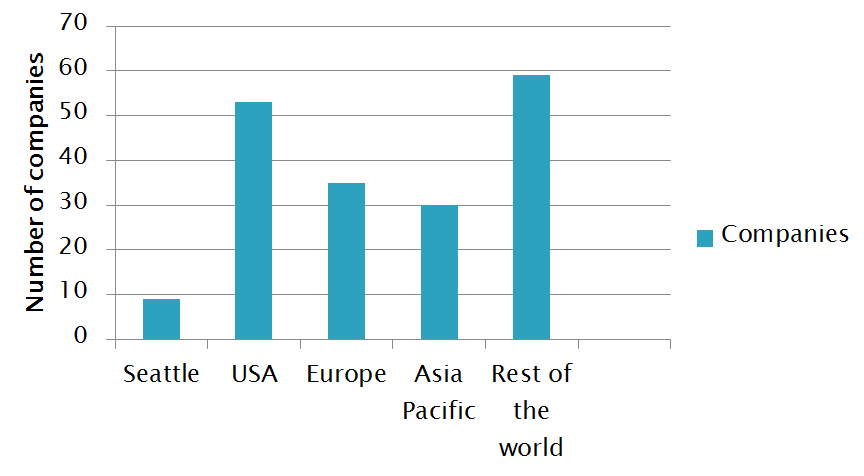
Market Value in US million dollars for Polycystic Ovarian Syndrome Research
Global Data estimates that the global PCOS therapeutics market was valued at $656m in 2010, and is expected to grow at a static Compound Annual Growth Rate (CAGR) of 2.6% over the next eight years, to reach $804m by 2018. The growing treated population which is mainly due to expanding prevalence of co-morbid conditions such as diabetes, obesity and dyslipidemia will drive steady growth in PCOS therapeutics market.
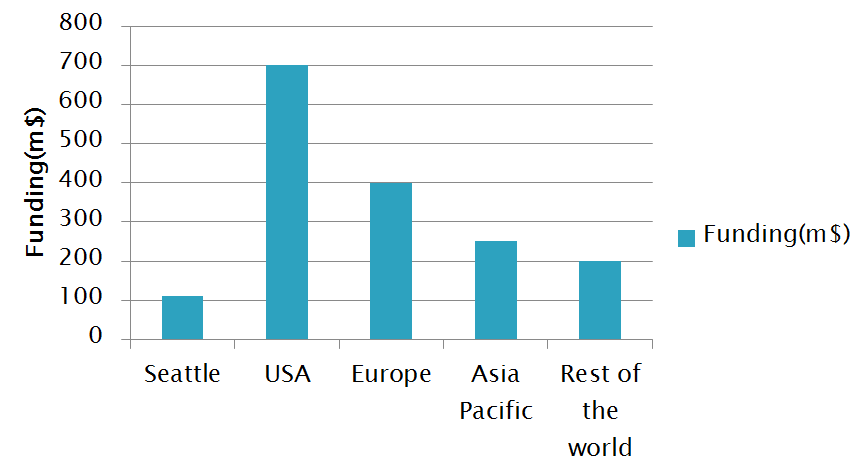
Market Growth of Polycystic Ovarian Syndrome Research
The Polycystic Ovarian Syndrome Market Will Start Growing From 2013 Due To the Increase in Disease Prevalence and Prescription Rates and Will Rise to $702m In 2016
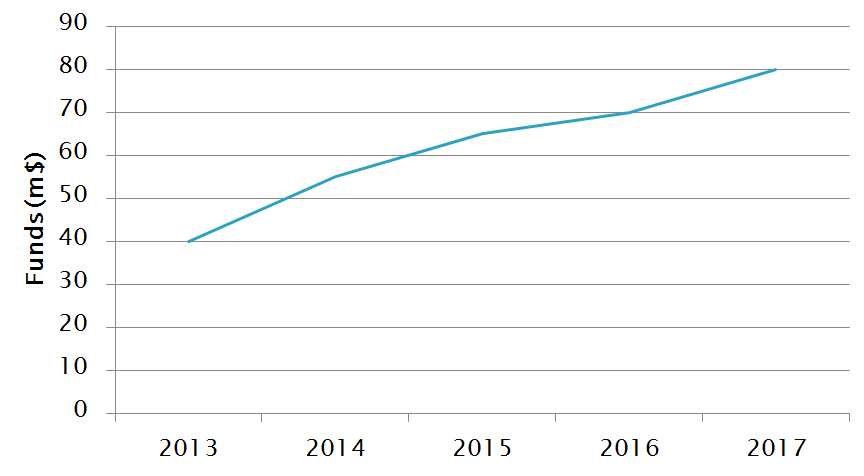
A Unique Opportunity for Advertisers and Sponsors at this International event:
http://pcosa.conferenceseries.com/sponsors.php
References:
- http://www.prnewswire.com/news-releases/polycystic-ovarian-syndrome-pcos-therapeutics---pipeline-assessment-and-market-forecasts-to-2018-132680453.html
- http://en.wikipedia.org/wiki/Metformin
- https://www.google.co.in/?gfe_rd=cr&ei=D4HUVIOrB6XV8geijYGQAw&gws_rd=ssl#q=TOP+universities+polycystic+ovarian+syndrome+in+USA
- https://www.google.co.in/?gfe_rd=cr&ei=D4HUVIOrB6XV8geijYGQAw&gws_rd=ssl#q=TOP+universities++of+polycystic+ovarian+syndrome+in+world+wide&start=10
- http://www.lef.org/Protocols/Female-Reproductive/Polycystic-Ovary-Syndrome/Page-01
- http://pcoshealthcoach.com/pcos-diet-grocery-shopping-on-a-budget-my-top-tips
- http://www.aafp.org/afp/2003/0815/p697.html
Welcome Message

It is my great pleasure to welcome you to 2015 PCOS Medical Conference, the First Annual International Conference on Polycystic Ovarian Syndrome, and to the beautiful Pacific Northwest. This conference is a combined effort of OMICS Medical Journal and PCOS Awareness Association. We hope that this will establish a premier international forum for research in all areas of Polycystic Ovarian Syndrome. The 2015 PCOS Medical Conference is “the place to be” in this exciting research area.
From November 16-18, 2015, for the first year of the PCOS Medical Conference, we will focus on Polycystic Ovarian Syndrome: Causes, Medications and Treatment, Effects on Reproductive Health and Pregnancy, Early Diagnosis and Intervention in Teens and Adolescents, Medical Diagnosis, Prevention and Management, Advanced Management, Naturopathic and Integrative Care approaches, Recent Research and Current Advancements in Treatment, and Challenges in Diagnosis and Treatment.
This first annual conference is for clinicians, scientists and those interested in all aspects of Polycystic Ovarian Syndrome. Our hope is that OB/GYNs, Endocrinologists, Family Practice Physicians, Dieticians, Estheticians, Acupuncturists, Nutritionists, Naturopaths, Fitness Specialists, Pharmacists and more will join us for discussions that can assist the over 7 million women in the United States who currently suffer from PCOS.
We thank you for wanting to join us in making this conference a successful one. I personally look forward to meeting you and hearing what you have to offer the PCOS community.
yours sincerely,
Megan M Domino
Founder and Executive Director
PCOS Awareness Association
Conference Highlights
- Polycystic Ovarian Syndrome
- Effects of PCOS on Womens Health
- Endometriosis
- Ovarian Cyst
- PCOS- Medications and Treatment
- Alternative PCOS Treatment
- PCOS and Pregnancy
- PCOS in Teens and Adolescents: Early Diagnosis and Intervention
- Medical Diagnosis of PCOS
- Prevention and Management of PCOS
- Advanced Management of PCOS
- Recent Research and Current Advancements in PCOS Treatment
- Advanced Polycystic Ovarian Diseases Treatment
To share your views and research, please click here to register for the Conference.
To Collaborate Scientific Professionals around the World
| Conference Date | November 16-18, 2015 | ||
| Sponsors & Exhibitors |
|
||
| Speaker Opportunity Closed | Day 1 | Day 2 | Day 3 |
| Poster Opportunity Closed | Click Here to View | ||
Useful Links
Special Issues
All accepted abstracts will be published in respective Our International Journals.
- Endocrinology & Metabolic Syndrome
- Journal of Metabolic Syndrome
- Journal of Steroids & Hormonal Science
Abstracts will be provided with Digital Object Identifier by














